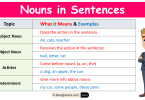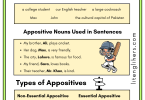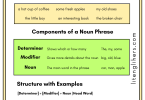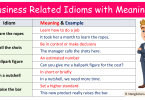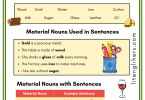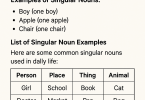Simple Techniques for Memorizing Extensive Vocabulary, Phrases, and Idioms
The English language is among the most voluminous of all languages, and this means that you’ll never run out of vocabulary words to learn and use.
Why is a strong vocabulary important?
You need good communication skills to work effectively with others in person, through email, or by other means. Knowing which words to use and when is an important part of being a strong communicator. Building your vocabulary is one easy way to improve your communication skills. Having a large vocabulary can help you choose the right word or phrase needed for the situation, allowing you to easily convey your ideas, concerns, decisions, and more.
The hardest part is memorizing new words!
It has to be done though. You have the assurance to master the languages successfully without learning the words and phrases that make it up. The best way to expand your vocabulary and knowledge of idioms is through reading. Hence, the first thing that we need to do, is to make a list of new or important words. However, watching English movies and dramas will help you and gives you insightful knowledge of idioms and phrases.
Now, when you build your English vocabulary as well as a stock of phrases and idioms, you can disintegrate your learning into two levels:
i: Fundamental level:
There are 2000 to 2500 words which are called the foundation blocks of the English language. These words are not particularly listed but comprise each first word for every meaning that you learn to count. These include certain words like how, why, and where which arc not replaceable by another word. For phrases and idioms, the cardinal ones will fall in the fundamental category.
ii: Extensive level:
Every word, phrase, or idiom with a similar or opposite meaning and object as the fundamental ones, will form the extensive list for more in-depth learning.
Extensive Reading (ER) is an approach to second language reading. When learners read extensively, they read very easy, enjoyable books to build their reading speed and fluency.
Tips for expanding vocabulary:
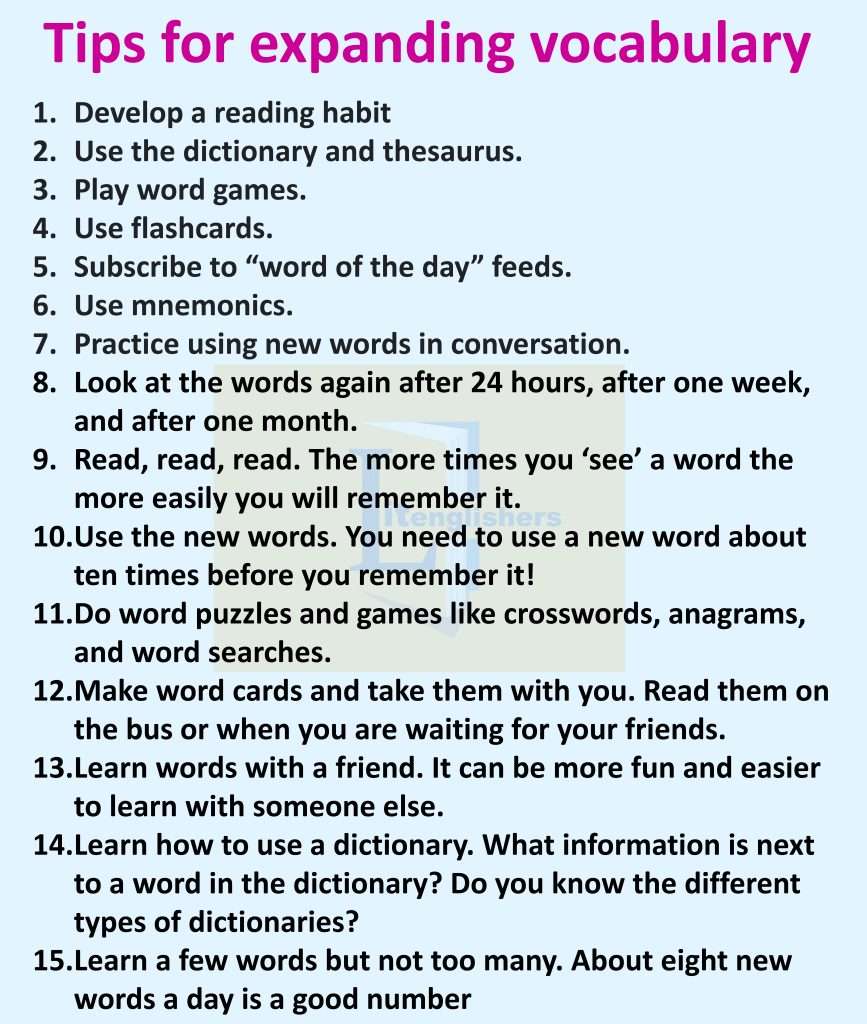 1: One word at a time:
1: One word at a time:
Do not try to memorize the entire dictionary within a week or month. That will not do you any good! If you think you can memorize every word within some days then you must have another thought because learning vocabulary isn’t a daily process, it takes time. Maximum if You can learn around about one thousand words within a day then you memorize five a thousand words within a weekend thirty thousand words within a month and sixty thousand words within two months but there are an estimated 171,146 words currently used in the English language according to the Oxford English Dictionary without counting 47000 obsolete words then its impossible to memorize all the English words meanings.
OK! Let’s think if you want to learn the whole dictionary of English words within a week and somehow you learn every word which isn’t technically possible because English is too wide but you memorize all the words within a week or month but after a short period you forget 80% of them because you didn’t practice, you just focus on memorizing those words. The things which matter the most are practice, practice, and practice.
Start from the chunks, Once you find a new word, try to speak or use it in your daily life. The more you practice the more you have a strong grip on that word.
2: Spend every spare minute reading
Read, read, and read! Books will expand your vocabulary to a large extent. Pay attention to what you are reading, what’s the meaning of every single word you are using. If you do not understand a word, take a dictionary to find its meaning.
Reading doesn’t mean that you read only from books, you can read any newspaper, magazine, poster, signboard, and what is written on the walls. Don’t miss any chance to learn. If you find some words difficult that you can’t understand then ask your teacher or your mentor to get the meaning of that word. Reading makes your pronunciation accurate.
3: Context skills
Typically while reading it is easy to decode the meaning of a word from the sentence it is used in (i.e). the context. In this sentence, you can puzzle out that the word decode means to give information in the form of coding or convert it into normal language. If you come across a word that you cannot completely understand, before turning to the dictionary, try to puzzle out what the word could mean after reading the whole sentence. Then, you can cross-check with the dictionary to see if you were right. This will build your context and it is important in English because a lot of words are similar and pronounced in the same way. Some words even have the same spelling but mean something completely different
4: Practice
Of course, practice makes perfect. Use the new vocabulary you have, or you might forget it before you even get a chance to use it. After learning a word and understanding the context it is used in, make it a point to put that word in your sentences.
5: Use the dictionary
I know I said do not learn the dictionary in a day, but skimming through it and picking out words that fascinate you is a good exercise. Learn these words and use them so you get used to the context they are used in. Play with words, Play games like scrabble or words with friends. These games can increase your vocabulary. Ask friends to help you along the way.
Since these games have a competitive twist, you intend to learn new words faster. Even Dictionary is a good game to learn new words. Since you are drawing the words out, the meaning of the word stays with you forever.
6: Learn the roots of words
To build a strong foundation for your vocabulary, it’s helpful to understand the roots of words. Many words have a common root and a prefix or suffix that helps you determine what the meaning might be. For example, when a word includes the root “duc,” a Latin word that means “to make or lead,” you can assume that the root refers to that Latin definition. You’ll see this root in words like “produce” or “deduce.”
7: Focus on practical terms and words
Some industries have different definitions for words or use entirely new words, which is called jargon. If your coworkers and others in your field use technical jargon, try focusing on building your vocabulary to incorporate these words. For example, some industries use the word “stand-up” to mean a short daily meeting.
You can also look for clearer ways to express yourself instead of relying on cliches that may be difficult for others to understand or skew your meaning. For example, instead of saying “get your foot in the door,” you could use “expand your opportunities.”
8: Create word associations
Word associations can help you remember certain words or phrases. For example, the word “gargantuan” means very large. Try creating a sequence with the word, such as tiny, small, medium, large, giant, and gargantuan. Forming associations can help you recall words you’re learning with more ease. These associations can also ensure you remember the word long-term.
9: Complete regular vocabulary tests
At the end of each week, create a quiz that includes the vocabulary words, root words, or other language aspects that you’ve been studying. Taking a quiz or test can increase your ability to retain new words. Every time you learn a new root or word, create a flashcard. On one side of the card, write the word, and on the opposite side, write the definition. You can practice recalling the definition from the words and vice versa.
10: Take a writing class
As you build your vocabulary, you can also improve your writing skills, which will benefit you in your professional life. Take a writing course online or at a local adult educational institution that incorporates assignments and tests to help you boost your ability to communicate effectively through writing. If you complete a writing class, take notes on any new words you learn throughout the course.
11: Create groups of words
As you learn new words, you can group them by meaning. By creating these groups, you can identify patterns that make it easier to incorporate the words into your daily speech. For example, you might learn words like affirmative, efficacious and decisive, which all mean positive. By grouping these words, it becomes easier to recall their general meanings and how to use them in speech.
12: Identify word nuances
Some words have alternate definitions in different contexts. An example of nuance is the word “frame,” which could have several meanings depending on the scenario. A frame could be a border that surrounds a picture or window, or it could mean to outline or highlight a certain physical quality. Identifying and understanding these nuances in language will help you better know how to use the words you’ve learned in your communication with others.
13: Identify words that share meanings
Different words often share the same or similar meaning. You can create a list of word groups to help you construct new and unique statements in your writing and speech. Some words have similar meanings but don’t always substitute for one another, so it’s helpful to review definitions of similar words before using them. By varying the word choices in your communication, you’ll sound more polished and professional.
14: Diversify what you read
Most people spend at least some of their time reading every day. Diversifying your reading choices can help you build a stronger vocabulary since you see new words from different writers who have varying writing patterns. Adding new texts and options to your reading list can also help.
15: Edit what you write
When you finish writing any professional text, such as an email or cover letter, review your content for repetitive words or phrases. Consider using your expanded vocabulary to replace words you used frequently throughout the document. By editing your writing, you can improve clarity, style, and tone.
16: Crosswords
Make it a point to do the crosswords every day. They can be a little overwhelming but with a little help, one can usually manage to complete the whole thing. They not only give you new words as you go through the thesaurus, but your general knowledge also expands. I think this is a brilliant exercise for learning a language.
17:Write a journal
Start with a written journal where you pen down your thoughts in English then try to write your own. This way you can practice writing as well. Remember to use the words you learned that day.
18: Listen
When others speak, listen, Observe how native English speaker use their words and how they pronounce the words. Do not hesitate to ask what they mean if you don’t understand something. When you learn to listen, you will also learn the usage of idioms, phrases, slang, and colloquialisms. This will make you more fluent as well as understandable.
19: Associations
When you learn a new word, associate it with something so that you have an easier time recalling it later. It could be a color, a feeling another word, or anything else. For example, “quintessential- one of my favorite words – means the perfect example of something. You can associate it with your favorite dish, your favorite actress or actor, or your parents. Use these associations to remember the word.
20: Make a list of words
Always keep a diary with you, make a list of all the words you come across in a day. When you get home or in your free time, open a dictionary and find the meanings of each word you collected.
21: Learn the roots
Make it a point to learn the roots of the words. This is an interesting way to remember the words. Generally, every word in English has roots in either Latin or Greek. It is to learn how the word came about. Languages keep evolving, so a word that meant something in the 17th century would not mean the same today but knowing about the history we get a full grip on that word.
22: Use the word
Again, this point is so important that I am repeating it over and over again. If you do not use the words you learn, you will forget them. Learn to use the Words. Make it a habit, to use them while speaking or writing. The best way to remember words is to start to teach others.
23: Prefixes and suffixes
English has a lot of words that use prefixes and suffixes. A prefix is a word that is added before another word. A suffix on the other hand is a morpheme that is added to the end of a word. “Do It Right Now”: Steps to Start Improving as fast as you can.

